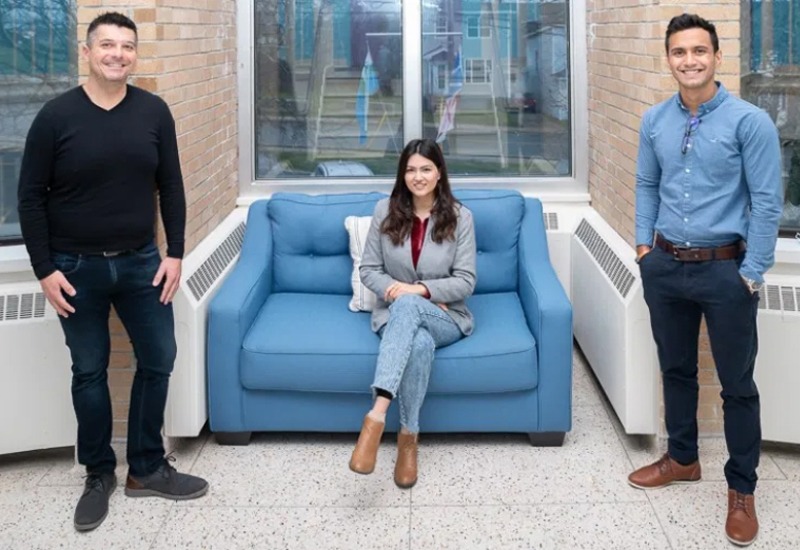Mutual learning

The ongoing global pandemic has provided a unique opportunity for local non-profits and small organizations to benefit from the skills of business students at Memorial.
Twenty-two Memorial students and 18 organizations participated in the Mitacs Business Strategy Internship (BSI) program this fall. The program was created by Mitacs Canada to allow students to undertake a paid four-month consulting project at participating organizations. Thirty-three post-secondary institutions across Canada are taking part.
Born from a pandemic
“The BSI was born in the spring at the time that the pandemic was hitting Canada,” said Libby Carew, director of business development for Mitacs Canada in Newfoundland and Labrador.
“We knew that there were a number of business students, undergraduate students and master of business administration students right across the country, who were supposed to be going out on work terms but, because of the pandemic, many of those opportunities were cancelled.”
The program targets non-profit organizations and small- and medium-sized enterprises (SMEs) to help mitigate the economic impact of the pandemic by enabling them to hire students to help with their business strategies.
The organizations contribute $2,500 towards the student’s stipend. The Faculty of Business Administration matches that contribution; Mitacs contributes $5,000 for a total of a $10,000 stipend for each student.
“There’s research out there that shows the backbone of Canada’s economy are these small- and medium-sized enterprises, so we wanted to target them right away,” said Ms. Carew. “We’re really hoping that it’ll have a positive economic impact and they’ll come out of the pandemic stronger.”
‘We were completely wrong’
Key Assets Newfoundland and Labrador in St. John’s hired two undergraduate business students through the program.
“We never considered looking for a business student before, thinking we would not be able to offer a rich and engaging mutual learning experience,” said Dr. Bill Walters, director of clinical services. “We were completely wrong.”
Key Assets is a non-profit organization that provides support services to young people and families.
Students Adrian Castro and Michael Baird were hired: Mr. Castro to work on research and organizational growth and Mr. Baird to improve financial processes and corporate governance structures.
“Before this placement, I didn’t think a business student could be useful in a not-for-profit organization,” said Mr. Castro, a bachelor of commerce (co-operative) student from Venezuela.
“After working with Key Assets, I realize that business skills are more transferable than most students think. Additionally, the work environment in not-for-profit is really innovative and creative. You really get to do many different things, which provides you with a lot of learning opportunities.”
Ashmita Lamichhane, originally from Nepal, is in her second year of Memorial’s master of science in management program.
She was hired by Milksta, a startup at Genesis that offers lactation products for breastfeeding mothers, to improve its supply chain processes and marketing strategies.
“Through this internship, I have realized that . . . there is a lot of research, brainstorming and trial and error involved in each business decision,” Ms. Lamichhane said.
“As I was assigned to a variety of tasks, it helped me explore different areas and find what I’m interested in and what I’m not. I have always been interested in research [and] at Milksta, I loved conducting research and developing growth strategies. That is something I see myself doing in the future.”
Students bring new perspective
For Dr. Walters, working with business students has been an eye-opening experience.
“Both of our students brought a whole new perspective and approach to our organization, allowing us to view our work through a different lens,” he said.
Citing Mr. Castro’s research on return-on-investment as an example, they learned that applying a business lens to Key Assets’ programming enables them to determine the financial benefits of early intervention.
There is a longer-term economic return when children can access Key Assets’ programming at a younger age, Dr. Walters says.
“We can’t help but wonder how different things would be if every business student had such an experience and the public engagement that would bring to the sector. In the future, we will definitely be pursuing more business interns as it is a win-win for both of us.”
The Mitacs BSI program is being offered again in the winter semester with 25 Memorial students participating.